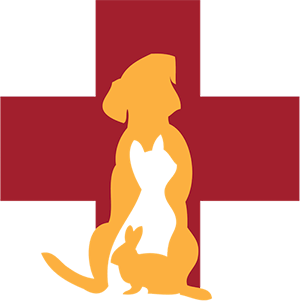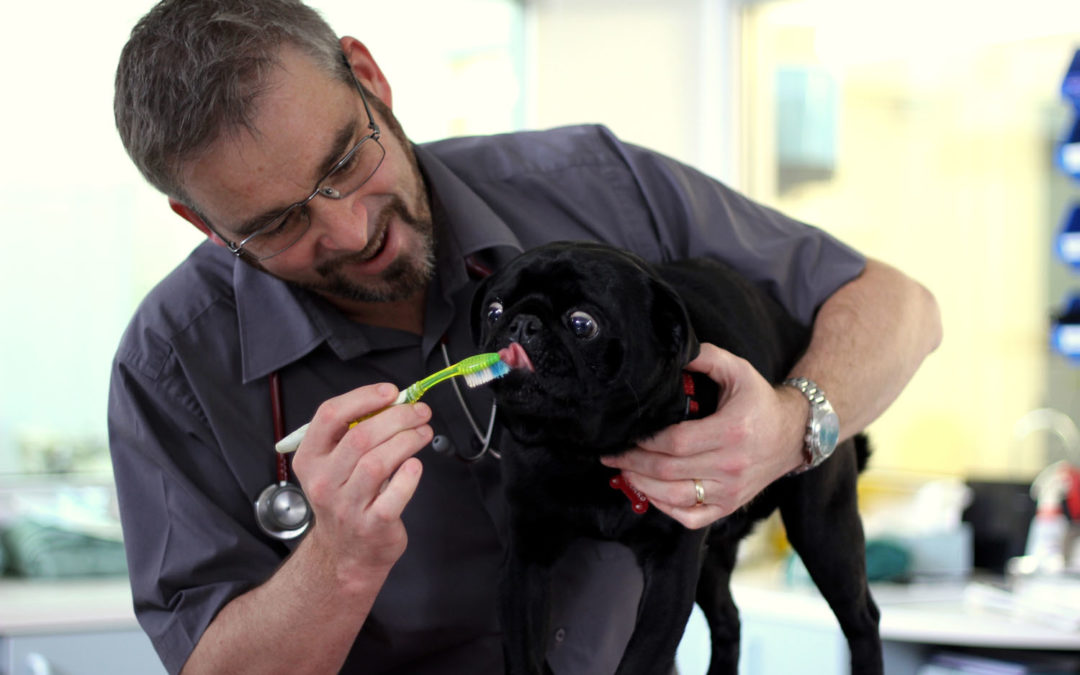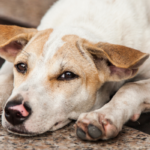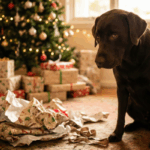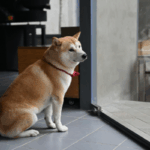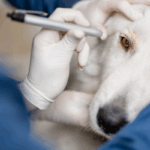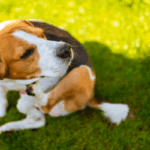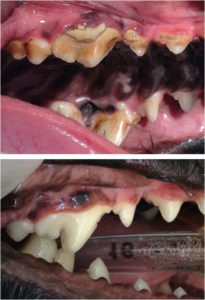 WHAT IS DENTAL / PERIODONTAL DISEASE?
WHAT IS DENTAL / PERIODONTAL DISEASE?
Periodontal disease is an irreversible change in the teeth which involves the destruction of the ligament and bone that support the tooth. Infection around the tooth’s socket causes the formation of pus as well as a foul odour which can spread deeper into the root. Infections in the mouth can be picked up by the bloodstream and be carried to other parts of the body.
Most dogs will require annual dental prophylaxis, which in simple terms is preventative scaling and polishing of the teeth. Few dogs get to old age without tartar accumulation and gingivitis.
WHAT CAUSES PLAQUE & TARTAR?
As in humans, dogs accumulate bacterial plaque on the surfaces of their teeth which then becomes mineralized to form tartar. This can quickly lead to infection and gingivitis. If the disease is caught at this early stage then thorough veterinary treatment may permit a full recovery.
If your dog has bad breath then the chances are, some of his / her teeth already have periodontitis! Only dental probing under general anaesthesia can detect disease early and allow effective preventative cleaning.
WHAT CAN I DO TO PREVENT IT?
There are a number of different ways you can prevent tartar build up on your pets teeth. They include
- DIET. By minimizing, or even eliminating the feeding of soft mushy foods and instead offering foods that are more inclined to encourage dental health, such as large chunks of fresh meat and high quality dry foods. We highly recommend both Hills T/D prescription diet and Eukanuba dry foods.
Hills T/D.
- The large sized kibble work like a toothbrush to help cleans pets teeth while they eat
- It is also a complete and balanced food which can be used on an ongoing basis.
Eukanuba Dry foods. The Eukanuba ‘defense system’ works in two ways
- Gnawing products. Other products such as rawhide chews, dentabones / greenies and pigs ears will also aid in the exercise of the teeth and gums. For best results we recommend raw meaty bones several times a week. Raw meaty bones such a lamb breast, lamb vertebrae, veal bones and chicken wings and necks are ideal. The bones should be too big to swallow in chunks, but not so big and hard that dogs break their own teeth! NEVER feed cooked bones to your pets as they are harder to digest and may splinter and cause intestinal problems.
- Tooth brushing. This is the ‘gold standard’ of veterinary care and is the most effective way to prevent tartar buildup. Ideally, get your pet used to tooth brushing when it is young, by handling him /her around the mouth for short periods of time. A few things to remember …
- Phosphate micro -cleansing crystals keep working after meals to help block plaque formulation.
- constantly reward and praise your pet whenever you successfully use the toothbrush or if you’re starting gout, when you handle them around the mouth.
- Lift the upper lips to see and gently handle the teeth,
- Try to avoid opening the mouth as this might cause your pet to wriggle.
- Use positive tones of voice throughout the routine
- DO NOT use human toothpaste. These are not made to be swallowed. There are many varieties of pet toothpaste to purchase which are made FOR pets and designed to be swallowed.
For dogs, a general anesthesia is required to thoroughly clean the teeth.
“With the latest anesthetics at out disposal and refined patient monitoring techniques and equipment, our hospital happily anesthetizes animals of almost any age with very low risk”- Dr Shaun Wynne.
After a veterinary consultation, an appointment can be made for any day Monday to Friday. Patients are dropped off between 8:00 and 8:30am and you will be asked to prevent any access to food for 12 hours before the procedure. Your pet will spend the day with us and we will make a discharge appointment time after 3pm. A post of check with one of our nurses will be scheduled 3-5 days post op and advice regarding dental care will be discussed.
WHAT TYPE OF SCHEDULING IS NEEDED FOR TEETH CLEANING?
For dogs, a general anesthesia is required to thoroughly clean the teeth.
“With the latest anesthetics at out disposal and refined patient monitoring techniques and equipment, our hospital happily anaesthetizes animals of almost any age with very low risk”- Dr Shaun Wynne.
After a veterinary consultation, an appointment can be made for any day Monday to Friday. Patients are dropped off between 8:00 and 8:30am and you will be asked to prevent any access to food for 12 hours before the procedure. Your pet will spend the day with us and we will make a discharge appointment time after 3pm. A post of check with one of our nurses will be scheduled 3-5 days post op and advice regarding dental care will be discussed.
